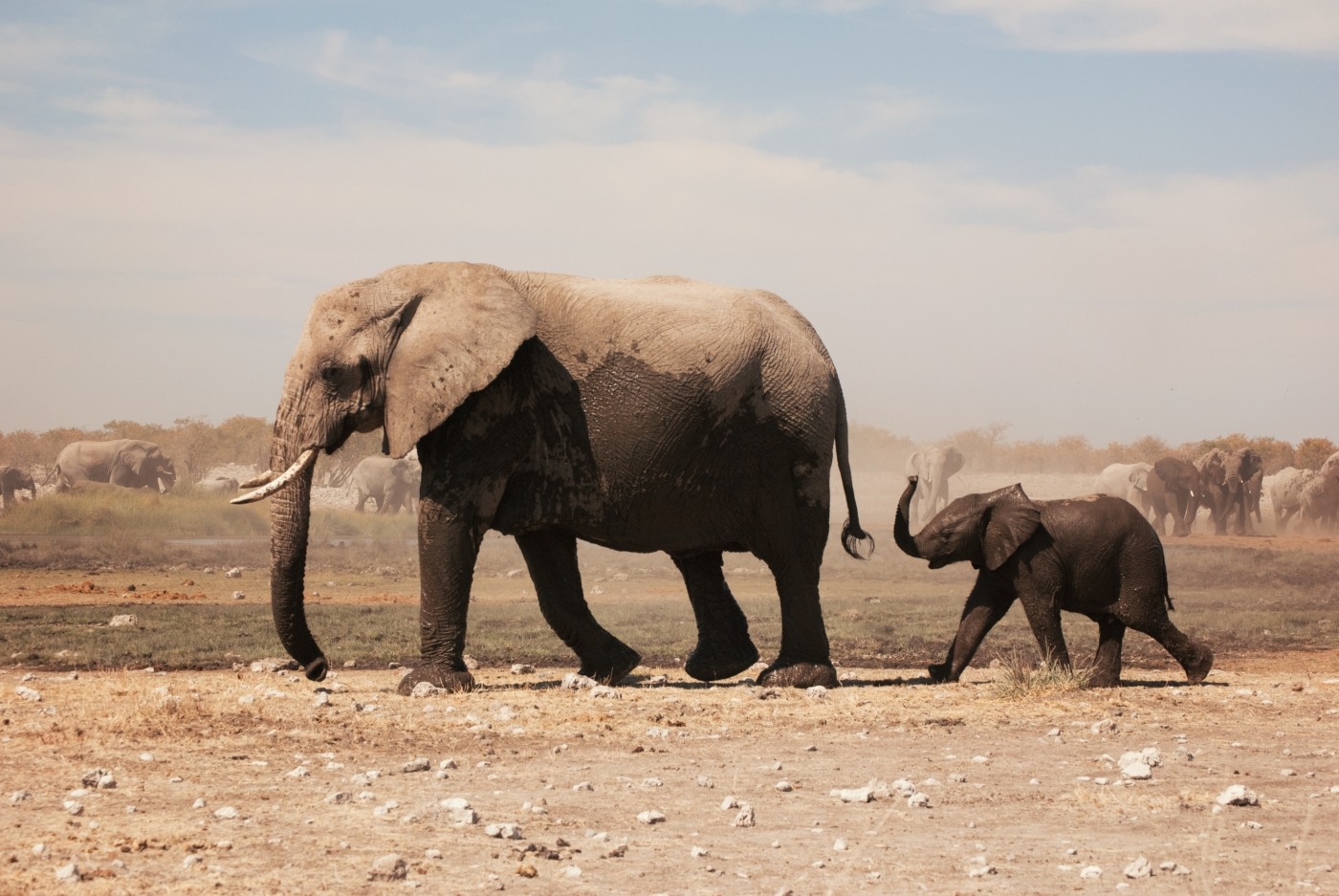Mozambique’s Niassa reserve reports first year with no elephants poached
There is something remarkable about an elephant. Their magnificent size, family instincts and the slow, ambling pace of their walk all make them impressive creatures. But it is their ivory tusks which attract the poachers.
In spite of the ban on international ivory trade, it continues to be practiced illegally. The ivory from an elephant’s tusk can be transformed into jewellery and ornaments which are sold for a hefty profit. Approximately 10,000 to 15,000 elephants are poached every year. With just 400,000 elephants remaining in Africa, these figures are deeply concerning to conservationists.
Approximately 10,000 to 15,000 elephants are poached every year. With just 400,000 elephants remaining in Africa, these figures are deeply concerning to conservationists
Yet, at last, there is some positive news. Mozambique’s Niassa reserve, which is one of the largest game parks in Africa, is celebrating a year without elephant poaching. No elephants have been killed in the park since 17 May 2018.
The reserve is larger than Switzerland, and it was once home to 12,000 elephants. Between 2011 and 2016, however, that number dropped to 3,600, in part a result of rampant poaching.
Mozambique’s Niassa reserve, which is one of the largest game parks in Africa, is celebrating a year without elephant poaching
Considering these shocking figures, the news that zero elephants have been killed in over a year is a fantastic achievement. George Wittemyer, chair of the scientific board for Save the Elephants, told Associated Press: “It is a major and very important development that poaching has ceased. This represents a major success.”
It follows the introduction of key anti-poaching initiatives within the Niassa park. Between 2015 and 2017, efforts were made to reduce the number of elephants killed, but the poaching rates remained high, with about 100 elephants killed a year. In early 2018, urgent action was taken.
It follows the introduction of key anti-poaching initiatives within the Niassa park. Between 2015 and 2017, efforts were made to reduce the number of elephants killed, but the poaching rates remained high
The park introduced a rapid-intervention police force, more authoritative patrolling and the deployment of a helicopter and Cessna aircraft in an attempt to control and deter poachers.
According to James Bampton, country director with the Wildlife Conservation Society and the man who discovered the remarkable news whilst going through data, the elite police force has a reputation for being intimidating. They are better armed than the normal rangers and take a firm approach. The force has the power to arrest suspected poachers, put together a case and submit it to a prosecutor within 72 hours.
The park introduced a rapid-intervention police force, more authoritative patrolling and the deployment of a helicopter and Cessna aircraft in attempt to control and deter poachers
“Just being caught with a firearm”, Brampton said, “is considered intent to illegal hunting.” The maximum prison sentence is 16 years.
Mozambican President, Felipe Nyusi personally authorised the elite police unit and has been actively involved in the attempts to limit poaching within Africa. Bampton said that the President’s support for the cause is a primary reason for its success. With political backing, there is a much better chance that poaching can and will be reduced on a global scale.
Mozambican President, Felipe Nyusi personally authorised the elite police unit, and has been actively involved in the attempts to limit poaching within Africa
However, problems remain rife. Rob Harris, country manager for Fauna & Flora International, which supports one of the operators in the reserve, said that: “Issues remain with lions and other species, so the combination of national-level support and on-the-ground effort must be maintained to improve the situation for all wildlife, and to keep elephant poaching at zero.”
The rate of annual elephant losses still exceeds the birth rate, and humans continue to build on natural land, reducing the elephants’ range.
The rate of annual elephant losses still exceeds the birth rate, and humans continue to build on natural land, reducing the elephants’ range
Just last month, Botswana, which is home to approximately a third of Africa’s remaining savanna elephants, lifted its ban on elephant hunting. The decision is considered a financial one, as critics of the ban claimed that it was having a negative impact on small farmers. Elephants sometimes damage farmers’ crops when they enter their fields. With more land being converted to agriculture as the human population grows, elephants and humans continue to come into conflict with one another.
Elephants are beautiful, intelligent beings. They are also intimidating, their charge ferocious. In many ways, they seem invincible. But the statistics prove that they are far from invincible. A century ago, there were several million elephants roaming Africa. Now, just 400,000 remain. Whilst poaching rates do seem to be in decline, it is clear that much more needs to be done to ensure a future for these remarkable creatures.

Comments